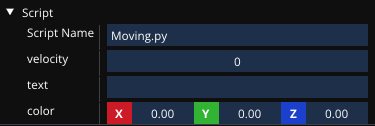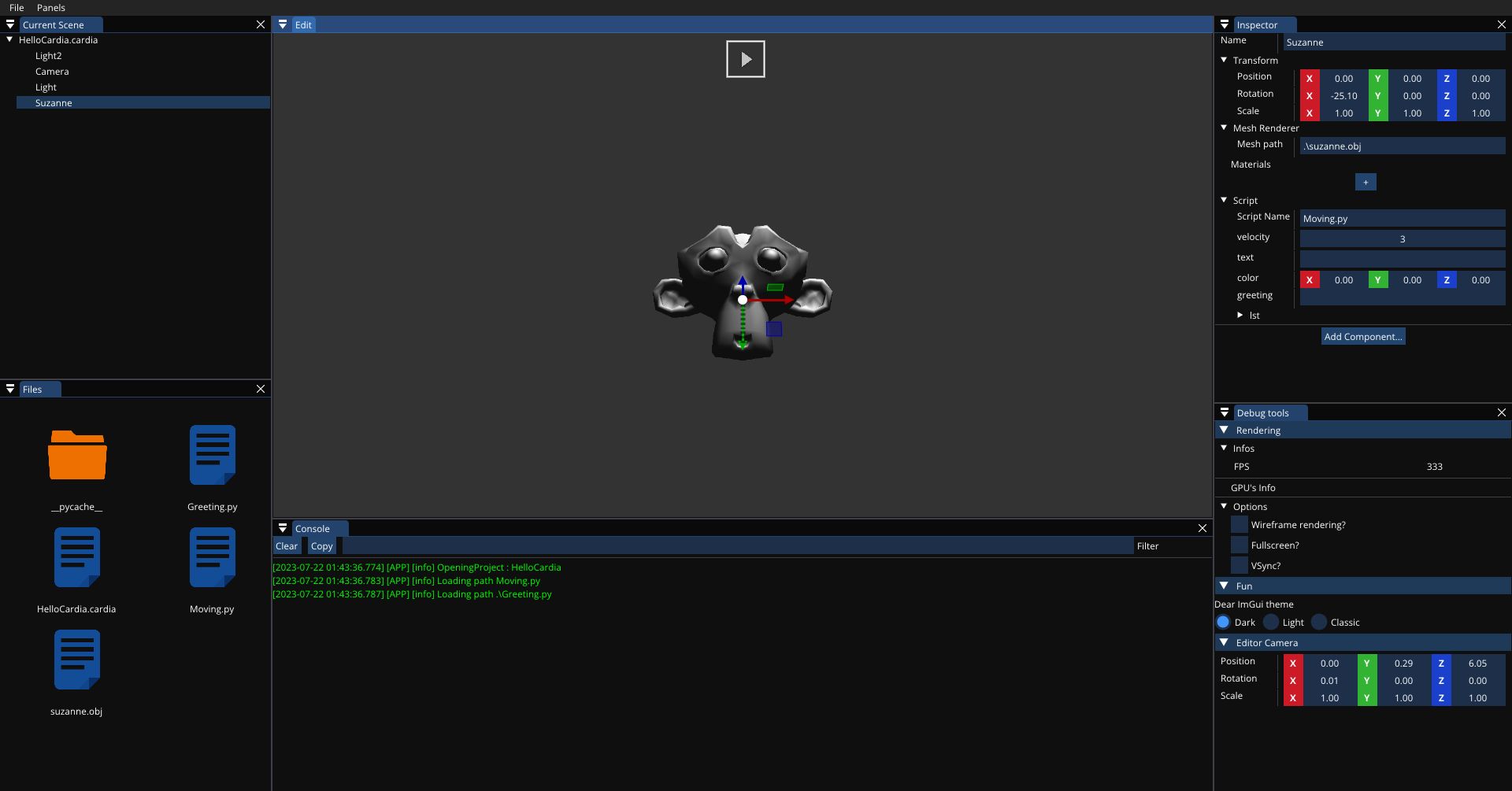Cardia is a C++20 game engine that uses python as its scripting language.
The initial aim was primarily educational, to learn game engine programming, but eventually evolved into an open source project with the intention of releasing a game with it.
Cardia integrates a scripting system using Python.
Scripts are attached to entities, and reflection allows fields to be simply modified in real time from within the editor.
For example, the following script can be attached to an entity:
class Moving(Behavior):
velocity: int
_tick_count: float
text: str
color: Vector3And then, from the editor, the "public" fields can be modified:
Cardia comes with an editor, CardiaTor, which lets you create and edit scenes, and modify entities and their components. Its long-term aim is to provide a whole set of tools to make life easier for engine users, although for the moment it remains very simple. It takes inspiration from the Unity editor, and is written in C++ using the Dear ImGui library.
Cardia uses an ECS architecture, which allows for a lot of flexibility and performance. The ECS is implemented using the EnTT library. The ECS is exposed to python, allowing for easy creation of new components.
Cardia uses Vulkan for rendering, mainly for it being a modern API, and for its precise control over the rendering pipeline.
As a build system, Cardia uses XMake, which is a cross-platform build system written in Lua. It is very simple to use, and supports a lot of platforms and compilers. It is also very fast, and can generate project files for IDEs such as Visual Studio, XCode, CLion, etc.
First, you need to install XMake. You can find instructions on how to do so here.
Then, you can simply clone the repository and build the project:
xmake -y
xmake run CardiaTorIf you want to contribute to Cardia, you can do so by opening a pull request. If you want to add a new feature, please open an issue first so we can discuss it. If you want to report a bug, please open an issue with a minimal example showing the bug.



